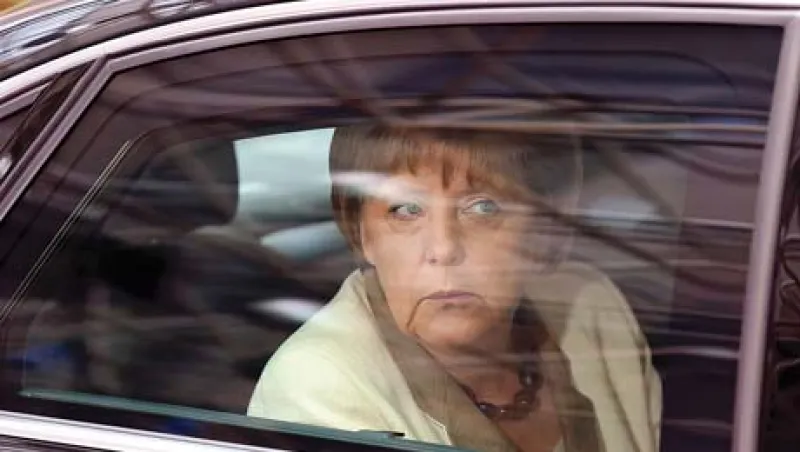Financial markets move at lightning speed. The European political process is an altogether more leisurely affair. Whether politicians can bridge the gap between those two worlds in coming weeks is likely to decide the fate of the euro. German parliamentarians lifted some of the gloom surrounding the single currency late last month when they approved an expansion of the flexibility and effective firepower of the European Financial Stability Facility, the €440 billion ($590 billion) bailout fund for euro area countries. The backing of Germany, Europe’s ultimate paymaster, virtually ensures that other reluctant states, like Finland and the Netherlands, will come on board, allowing the EFSF to become fully operational later this month.
The expanded facility is a limited step, though. Governments could use the money to recapitalize banks or buy the bonds of threatened states like Italy and Spain, but the fund lacks the firepower to credibly contain the crisis. As it is, Europe has already committed some €200 billion of the fund to averting a Greek default.
At last month’s meetings of the International Monetary Fund and World Bank in Washington, U.S. Treasury Secretary Timothy Geithner urged European governments to “create a firewall against further contagion.” Bank of Canada governor Mark Carney suggested that such a firewall would cost about €1 trillion — more than double the existing bailout facility. Many private sector economists put the number at €2 trillion or more.
European politicians recognize the stakes, which explains why German Chancellor Angela Merkel and French President Nicolas Sarkozy repeatedly express their commitment to supporting Greece in the crisis. But they are unwilling to back up that commitment with additional money — or more-radical solutions, like Eurobonds — because of public opposition to bigger bailouts. “This is a very difficult political matter, to convince taxpayers that it’s in their best interest to support the periphery,” says Deutsche Bank CEO Josef Ackermann.
German Finance Minister Wolfgang Schäuble underscored those constraints by delivering a message of tough love in a Washington speech, insisting that states with excessive debts need to aggressively pursue fiscal austerity and economic reform. “We won’t come to grips with economies deleveraging by having governments and central banks throwing, literally, even more money at the problem,” he said. “You simply cannot fight fire with fire.”
In the short term, markets are worried about Greece’s spiraling debt, which will exceed 150 percent of GDP this year, and waning political support for austerity in Athens. Bruce Kasman, J.P. Morgan’s chief economist, says the current EU-IMF austerity program has pushed Greece into a recession more severe than Argentina’s a decade ago. It’s arguable that the country would be better off leaving the euro, he says. “Greece is insolvent, and the European monetary union and the EU as a whole need to deal with it,” Kasman says.
European officials are working behind the scenes on ways to prevent contagion. One idea, proposed by Deutsche Bank chief economist Thomas Mayer and backed by Geithner, would turn the EFSF into a bank and have it buy bonds from countries like Italy and Spain with a liquidity backstop from the European Central Bank. But Jürgen Stark, who last month announced his resignation from the ECB because of his opposition to the bank’s existing bond purchases, insists that the idea will never fly. “It is a step too far,” he says. “It is monetary financing” of government debt, something that’s strictly forbidden by the Maastricht Treaty, which established the euro.
Another idea floated by officials would have the EFSF provide first-loss guarantees for buyers of Italian and Spanish bonds. A 20 percent first-loss guarantee, for example, would effectively leverage the EFSF’s funds by five to one, giving it greater market impact and, officials hope, luring private investors back into the market. The mechanics of such an arrangement would take weeks to work out, though, and would require overt political backing from Berlin, Paris and other capitals. The silence so far from EU leaders doesn’t suggest that a plan B is ready in the wings.
“We are concerned the situation has to deteriorate further for the politicians to act,” says José Wynne, North American foreign exchange strategist at Barclays Capital. One potential trigger: Assuming the ECB stops buying Italian and Spanish bonds when the new EFSF becomes operational, a run on those bond markets could exhaust the bailout fund’s remaining resources in a matter of weeks, Wynne estimates.






